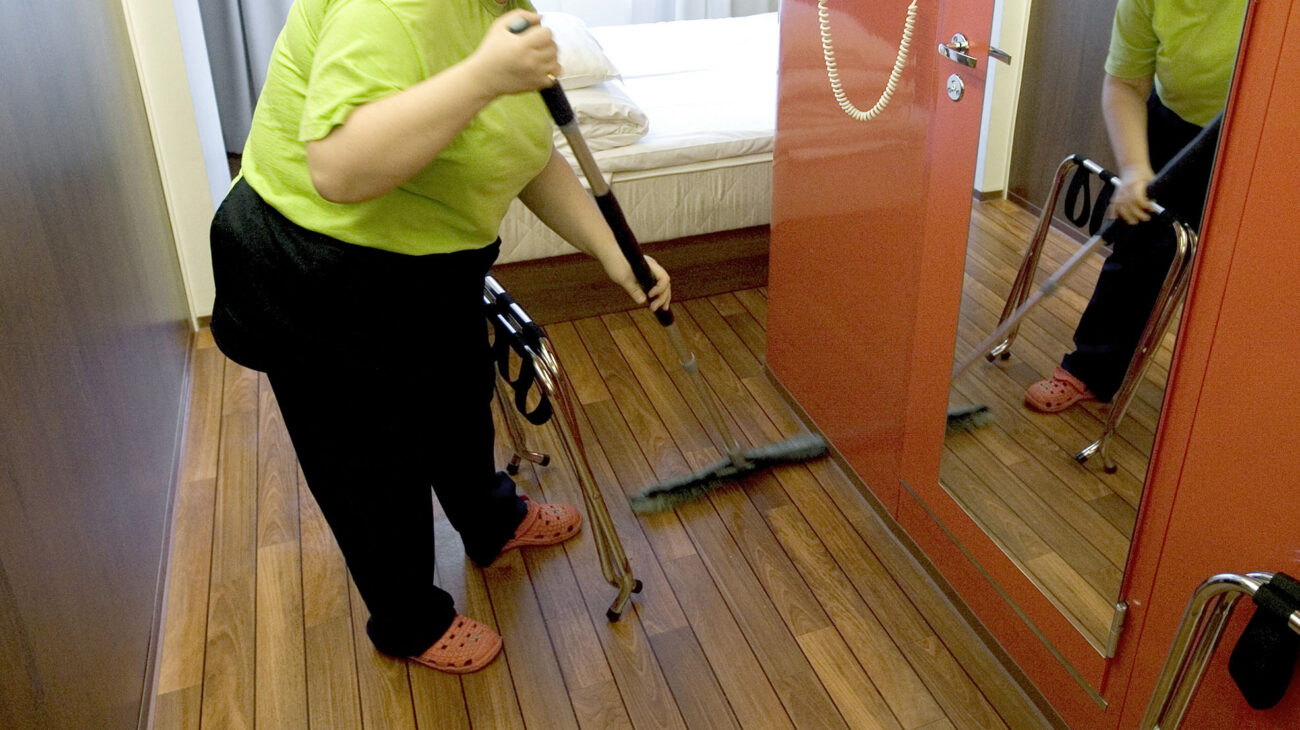
Photo: Patrik Lindström / SAK
SAK investigates: Migrant worker integration depends on employer goodwill
Migrant workers in Finland enjoy little support from employers when studying the local language, even though misunderstandings due to the language barrier cause the most problems at multicultural workplaces.
In spring 2019 the Central Organisation of Finnish Trade Unions – SAK investigated the status of immigrants at work and the impact of immigration on the world of work, including direct interviews with employees, shop stewards and employer representatives at multicultural workplaces. The findings of this interview study are summarised below.
The aim of the study
- to review the kind of multicultural human resources policy implemented at SAK workplaces, and
- to identify known good practices that facilitate the operation of multicultural working communities and help immigrants to integrate into the world of work in Finland.
The method applied
- Seventeen interviews at four multicultural workplaces.
- The interviewees were migrant workers, shop stewards and employer representatives.
The findings of the study
- While cultural differences are evident at work, they are not the only factor affecting life at workplaces. Employees are also individuals and not merely representatives of some culture. Other factors affecting the workplace include age and work experience.
- The language barrier is the principal problem in multicultural working communities.
- It is particularly important to communicate clearly in multicultural organisations, and to make sure that information reaches all employees.
- Meetings of the working community that give employees an opportunity to meet one another and their supervisor foster transparency and togetherness at the workplace.
- Carefully initiating new employees and allowing for varying levels of language ability is worthwhile in multicultural organisations.
- Training supervisors and staff in multicultural issues is one way of building a more effective working community and avoiding misunderstandings.
- Immigrants lack knowledge and understanding of the trade union movement.
- The willingness of employers to help remains crucial for migrant worker integration in Finland.
- Interviewees anticipated natural progress towards an increasingly multicultural future that will provide more resources for working communities.
A checklist for multicultural organisations
Make someone responsible for staff diversity and multicultural aspects at the workplace
- You can allow for staff diversity by listening to the ideas and needs of various employees and acting on them.
- Depending on the size and structure of the organisation, it is also worth considering whether some human resources specialist should be responsible for monitoring and developing diversity at the workplace, or whether some discussion forum could be established to encourage employee involvement.
Focus on staff initiation
- Effective initiation of new employees is not merely about learning the work, but also requires familiarisation with custom and practice in the organisation and at Finnish workplaces in general.
- A properly comprehensive staff initiation process should never take the employee’s knowledge for granted.
Let more experienced workmates serve as guides and mentors in the world of work
- Many workplaces make a more experienced workmate partly responsible for initiating newcomers.
- It can be worthwhile training some workmates not only to help newcomers learn their work duties, but also to help them appreciate how things are done in the organisation, and also how they can adapt to the culture of their new homeland.
Help employees learn the language
- Everyone benefits when migrant workers learn the local language.
- By supporting language skills (e.g. by providing opportunities to study Finnish or Swedish during working hours), employers show that they are committed to migrant workers and wish to help them integrate as immigrants.
- Immigrants with language skills are more socially independent and require less support from the employer.
Communicate fairly and intelligibly
- Keep all employees informed by using various communication channels and expressing information in simplified Finnish, English or other languages used by immigrants.
- It is important for supervisors to make sure that internal communications reach every employee in the organisation. Supervisors should be trained not only in effective communication, but also in encountering cultural variety more generally.
Seek further information from trade unions
- Employers can boost their own work by maximising trade union exposure at the workplace, so that migrant workers learn about the work of trade unions and how they can join the local union.
- The employer’s responsibility for advising employees about rights and practices in the world of work is lightened when a trade union is available to provide this information.
Source: Ella Lautaniemi: Maahanmuuttajat suomalaisilla työpaikoilla – Millaista on hyvä monikulttuurinen henkilöstöpolitiikka? [Immigrants working in Finland – What is an effective multicultural human resources policy?]